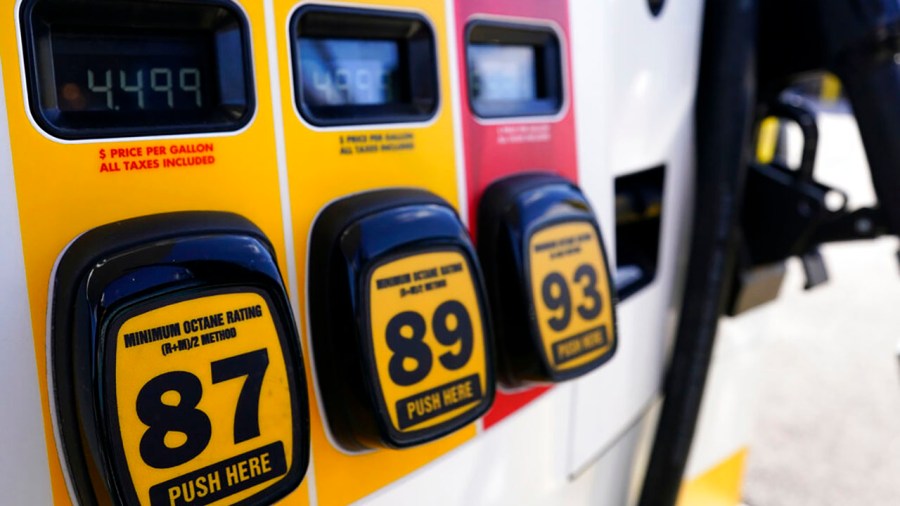Recession? Inflation? Making sense of US economy
(NewsNation) — Plenty of questions and uncertainty loom over the U.S. economy right now.
Inflation is rising at its highest rate in 40 years. At the same time, a 1.4% shrinking of the economy occurred in the first three months of 2022.
The word “recession” has once again introduced itself into the American vocabulary, and the Federal Reserve is planning to undertake the delicate yet impactful process of raising interest rates.
On the other hand, consumer and business spending are still going strong amid the rising prices. The unemployment rate is low and experts are forecasting Americans will keep spending money, pumping life into the economy in the months to come.
As experts and economists try to make sense of this economy and forecast, with some institutions including Deutsche Bank forecasting a hard recession and others including Goldman Sachs predicting just minor downturns, NewsNation spoke with Fox Business reporter Shibani Joshi to make sense of this wild economy.
Q: What does it mean for the average American that the economy has “shrunk” 1.4%?
Joshi: That’s a really good question because when you see these headline numbers, you start to think about ‘how does this affect me?’ Well, recessions and contractions and pullback in growth are very normal in the business cycle. There’s ebbs and flows, so it’s one of the reasons investors and experts out there, economists, aren’t too worried about this fall in GDP because the economy ebbs and flows; it’s a living and breathing thing.
When we start to see the economy shrink and slow down, a couple of things happen. First, we start to see businesses start to fail more often, which impacts jobs and impacts the overall health of our local economy. We also see our investments and stock market start to shrink. So, our 401(k)’s and all that money we have in the market saving up is not performing as well as it has been in the past. And then we start to see spending and lending tighten up. So businesses or banks won’t be lending as much or they’ll be lending at higher rates, which makes things like your credit card fees as well as home loans and things along those lines start to rise up higher, which means you have less money in your pockets.
Q: What indicators are experts seeing that lead them to believe consumer spending will rise?
Joshi: What we have are consumers with still a lot of money in their pockets. They have pent up demand from the pandemic that they weren’t able to go out and go on that summer vacation, travel to Europe, maybe even see movies and those things are accounting for the continued investment, for lack of a (better) word, in consumer discretionary and consumer spending-related things.
We also have wages that continue to be climbing higher and higher so even though inflation is rising higher, we also have wages that, depending upon the industry, are able to keep up with the inflation.

Q: The question on everyone’s mind is if, or when, will prices on things like gas and groceries start to fall again?
Joshi: It’s hard to say because we are starting to enter into the peak season for gas prices. Gas prices are seasonally fluctuating and dependent upon supply and demand and during the summer months, Spring into summer is when you see people getting in their cars, taking road trips, kids are off school and on summer vacation and demand is higher and we see prices go higher, as well.
We have this geopolitical tension happening in Ukraine and even though we get a very small percentage from Russia, that ban has had an impact on our gas prices, so the extent that there is going to be any resolve in that geopolitical crisis, we could … see some lifting up.
Part of the issue we have is the supply side. COVID restrictions, fewer workers able to refine and produce gas so we have a constriction of supply, as well. As we see the economy and workers coming back to work and the industry getting what it needs to rev up again, that could lead to some relief at the gas pump.
Q: The Federal Reserve is planning on raising interest rates to try and slow the economy. How much pressure is on them to get this right and what does history tell us about how that move plays out?
Joshi: The Fed has an incredibly crucial role in determining what happens with the direction of our economy. They have almost the impossible task of trying to tame inflation but not crush the economy and the main lever they have to do that is the Fed interest rate and we know the Fed has raised it by 0.25%, the expectation is that it will be raised by 0.5% at the main meeting.
All of this is to kind of cool the economy down, cool inflation down and there is a correlation, not directly wound to Fed tightening, and the probability of a recession. In fact, Goldman Sachs put out a report that eight of the last 14 Fed tightening cycles has led to a recession, so maybe that is about a 50% chance.
But it all comes down to how quickly the Fed responds, how aggressively the Fed responds and when they start to ease up on the tightening. Because what you don’t want to have happen is too much tightening, too high of rates, and then we plunge into a recession.










